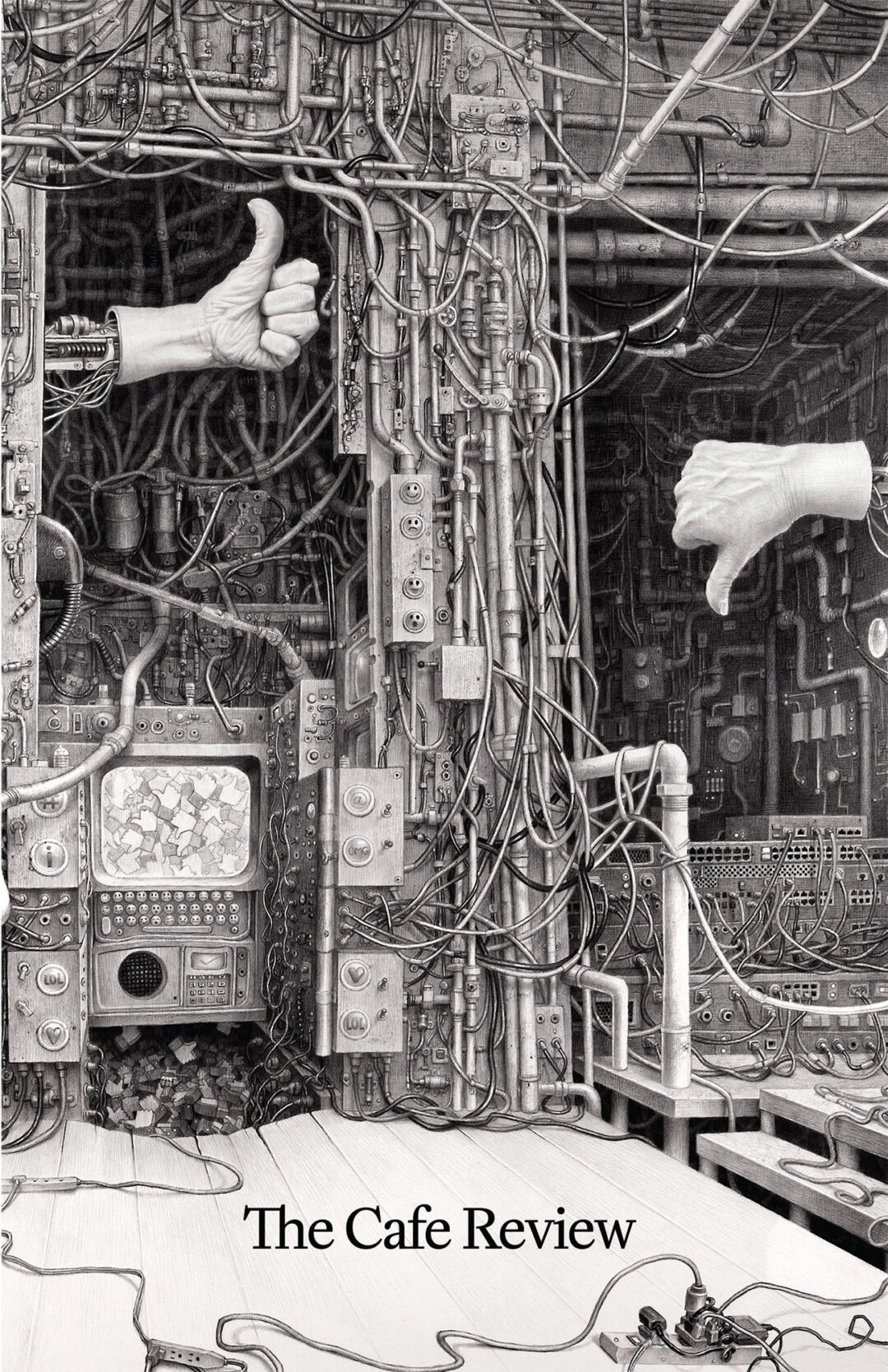Abandoned Draft #1: Dismissal

by Mike Bove
I call in the ghosts
and tell them to listen
for once. We come to
an understanding:
I no longer need
their chatter. We agree
1 can move to
the window, open it,
and after the last
has wafted out, stay
to watch them
become rain.
Off the Danger List

by Thomas Feeny
It has been two weeks now
Milky eyes no longer sink into
your skull
Your loose gaze strains to focus
in the weak afternoon light that
drifts through half–closed blinds
In the room’s every corner,
the cutting smell of hospital
All day a sour taste has raked your tongue,
so that you find few holy words
— just ten million dust motes,
swirling furiously
Concentrate. Listen to their story
Seeksorrow

by Thomas Feeny
On the star–studded day
you hit the state lottery,
feeling oh so biggity
— puffed up like
a daddy penguin — you step
into O’Hara’s, yell for a tall one,
and for one bubbly millisecond
escape the need
to nail your shadow to a cross
All celestial signs proclaim
it’s time: the moment
to doff your grungy gray,
smile a bit, dig out your wallet
& spring for a round all around
To that you agree, but much
like your pa, eternal seeksorrow,
although grinning on the outside
you cannot help but chide
elusive fortune
for four long decades of delay
Buried in the City That Care Forgot

by C. S. Nelson
Odd thing,
holding your father’s speckled grey remains
in the pink palm of your hand,
a pile of powder from a plastic bag
delivered to you in a varnished box
half the size of a loaf of bread.
He wanted his ashes scattered
over his mother’s grave.
The woman of whom he never spoke.
Of whom I never saw a photo
until they moved into assisted living
and a formal portrait, so young,
found its way onto the mantel.
I didn’t even know where her grave was.
Cousin Paul knew. St. Louis Cemetery #2,
the Robelot crypt. The tomb was splendid,
one of their mini–mansions of memory.
Four ornate pillars offset the comers
with just enough doo–dads to be grand
yet refined. Front stones engraved with
the given names, the dearly interred.
Nowhere, however, can we find Aimée,
his mother, who died when he was four.
Her name. Her death. That’s all we knew.
We never wondered how she died
or why he never spoke of her. We learned
early on not to knock on doors he locked.
Time comes to punch our nerves,
to the hand–cuffed letting go
of ashes and tears,
to tossing what’s left over the top
of the six–foot high, white–washed vault
only to watch the wind play rude.


